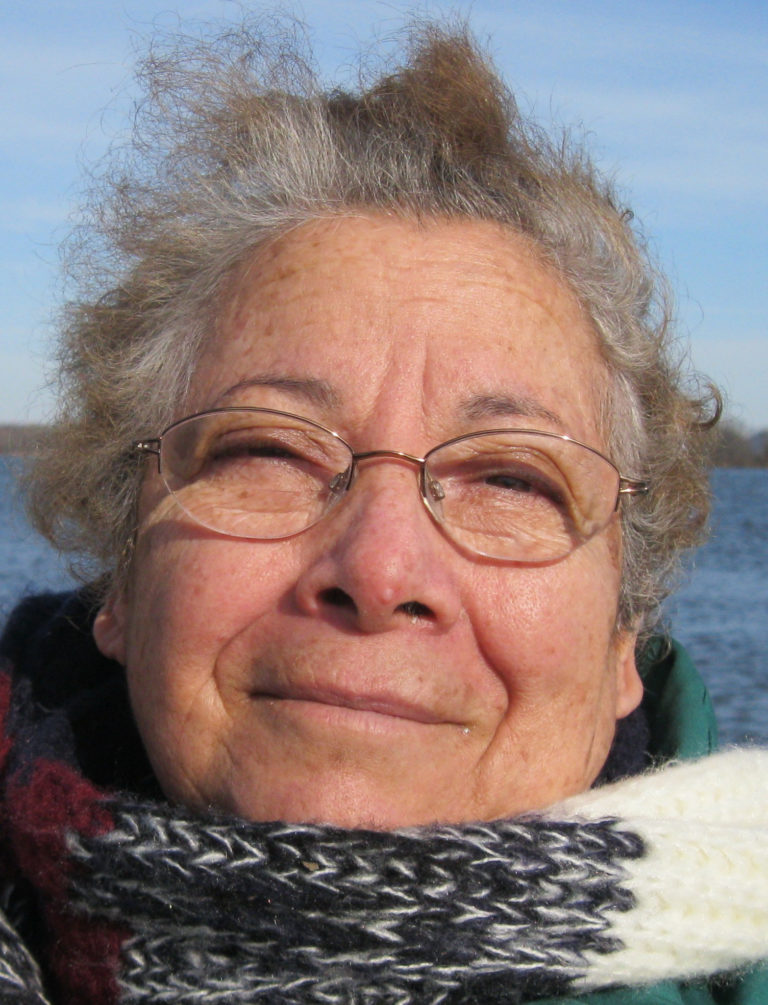
By Diane Walder
Over the years, the Northside has become a tight-knit community, concerned and involved in decisions about its remarkable natural resources, economic vitality and safety. It is friendly, funky and feisty.
But for one 66-year-old woman, who became homeless after surviving two catastrophic events, the Northside was a refuge. How does someone like Irma Rodriguez become homeless?
Funny and tenacious, Irma is a short, stout fire hydrant of a woman. Originally from Honduras, Irma had a teaching career in San Pedro Sula, a dangerous city controlled by drug cartels. After retiring in 2001, she became increasingly concerned about her family’s safety, so she immigrated to the United States with her 6-year-old adopted son, became a permanent resident and lived in New Orleans. Her goal was to become a U.S. citizen and eventually bring her children and grandchildren to safety with her.
Catastrophe struck in 2005 by way of Hurricane Katrina. Irma and her son survived but lost everything. Bewildered and without resources, they moved to and from temporary shelters. When busses from church and rescue organizations began arriving to help resettle survivors, Irma and her son climbed on one headed for Clinton, Missouri, where a new life was waiting for them. Irma put her plans for her family on hold. She got a job working for a church and rented a nice house with a big yard. Her son went to school. Irma’s mother came to live with them. They were happy to be alive and together. Clinton was a welcoming community.
Catastrophe struck again in 2011. Irma returned to New Orleans for a short, much-needed visit with her siblings. A few days after returning to Clinton, Irma didn’t feel well. The next thing she knew, she awoke from a coma three weeks later in a Kansas City hospital. Irma had unknowingly contracted West Nile virus from a mosquito bite during her New Orleans visit.
Physical therapy helped her learn to walk again, but her ability to speak English did not return. She suffered headaches and other physical and cognitive side effects from the disease. Because she had no health insurance and incurred thousands of dollars in medical bills, she had to sell everything she had acquired in Clinton to pay debts.
Irma’s recovery was long and difficult. Her son went to live with her daughter in New Orleans during her illness. She couldn’t work, could no longer pay rent on the house in Clinton, and resorted to relying on relatives and friends for shelter, moving from place to place. What she needed but could not get was care, stability and time to recover.
In the winter of 2012, Irma wound up in Madison through a tenuous Honduran connection. She contracted pneumonia and was hospitalized. Six months and a series of bad temporary situations later, she found herself homeless. Through a quirk of fate, Irma found a temporary, supportive and comfortable housing situation on the Northside. She was taken to the Aging & Disability Resource Center, where a bilingual Information and Referral Specialist set her up with all the services she qualified for.
The next stop was the North/Eastside Senior Coalition, where Irma was assigned a bilingual case manager, who helped her fill out complicated housing forms, untangle Social Security issues, and solve other knotty problems. Irma began attending the Latino support group organized by Yolanda Salazar, NESCO’s Latino cultural diversity specialist. The group provided Irma with essential social activities to reduce her isolation, particularly since her housing host did not speak Spanish.
For months Irma attended an English class designed to prepare her for the U.S. citizenship exam. She studied relentlessly. Through the UW law school, she received free legal assistance from an attorney who helped her through the citizenship application process.
Irma is back on track. None of it would have been possible without the support services of the North/Eastside Senior Coalition and the generosity of the Northside residents who assisted her.